The dark side of El Salvador’s war on gangs
He’s a wildly popular leader credited with one of the most stunning turnarounds in history — but it comes with a huge dark side, victims say.
El Salvador President Nayib Bukele’s war on gangs is credited with slashing homicide rates and restoring security and dignity to citizens of what was once one of the world’s most dangerous countries.
The price, say observers and victims, is paid in arbitrary arrests, inhumane detention, even torture — and fear of a whole new kind.
Under a state of emergency that suspended many fundamental rights, Mr Bukele’s regime has rounded up more than 75,000 suspected gangsters — some merely for sporting tattoos.
About 7000 have since been freed for a lack of evidence, but activists say many innocents — including minors — remain behind bars.
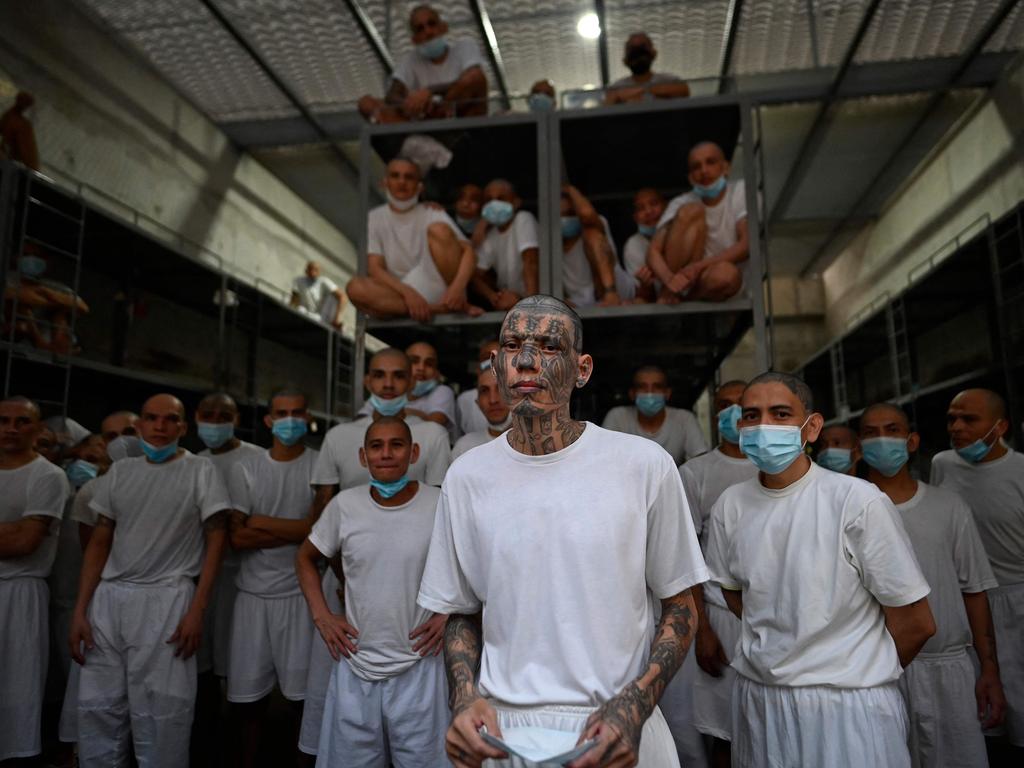
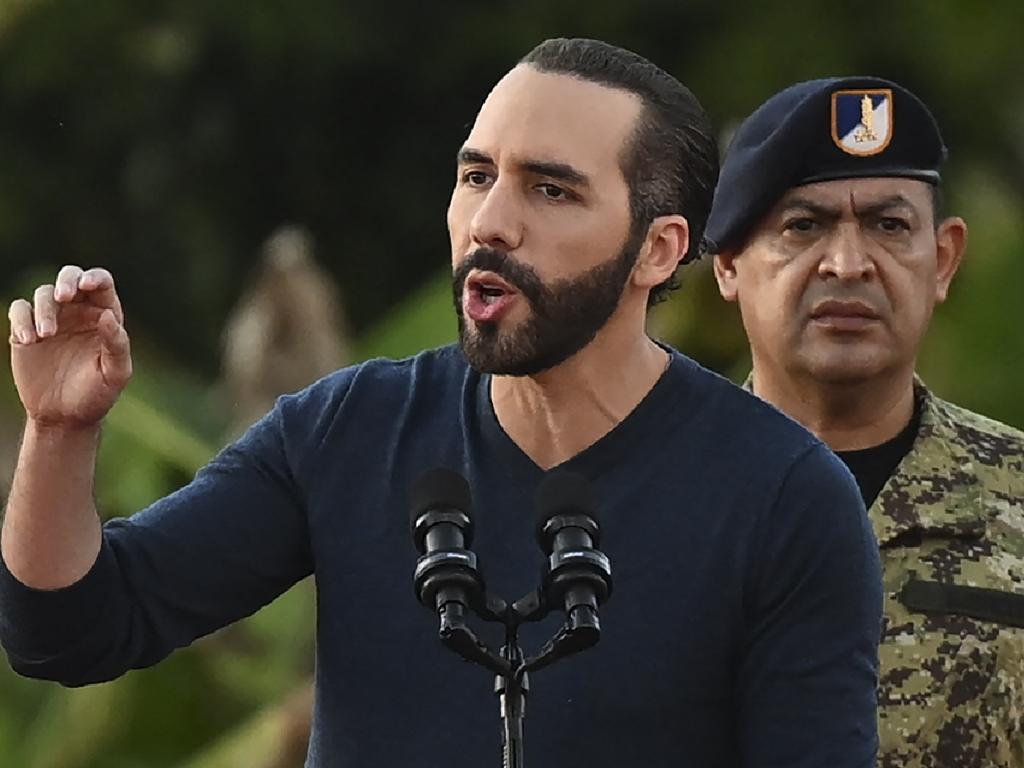
‘Innocent people are dying’
Sandra Hernandez, 36, says her husband Jose Medrano, a day labourer, was taken by police in May 2022. He never returned.
Mr Medrano was falsely accused of gang membership, Ms Hernandez told AFP at her rickety, wooden home on a dirt road in El Rosario, some 50 kilometres from the capital San Salvador.
The last she heard from her husband was thanks to a covert call nearly a year after his arrest to tell her he had been taken to hospital for dialysis.
We are HONORED to receive your attacks, just days before OUR election.
— Nayib Bukele (@nayibbukele) January 31, 2024
I would be very worried if we had your support.
Thank you ðŸ™ðŸ¼ https://t.co/7V5a0AdpCV
She was later informed he had died, of kidney failure.
“But at the funeral home I was told the body had bruises,” Ms Hernandez told AFP. “Innocent people are dying.”
Ms Hernandez lives with a son of 17 and a 13-year-old daughter in a shack with no water or electricity.
The family depends on remittances sent by a relative in the United States and odd bricklaying jobs her son does.
“People don’t know what life is really like,” she told AFP.
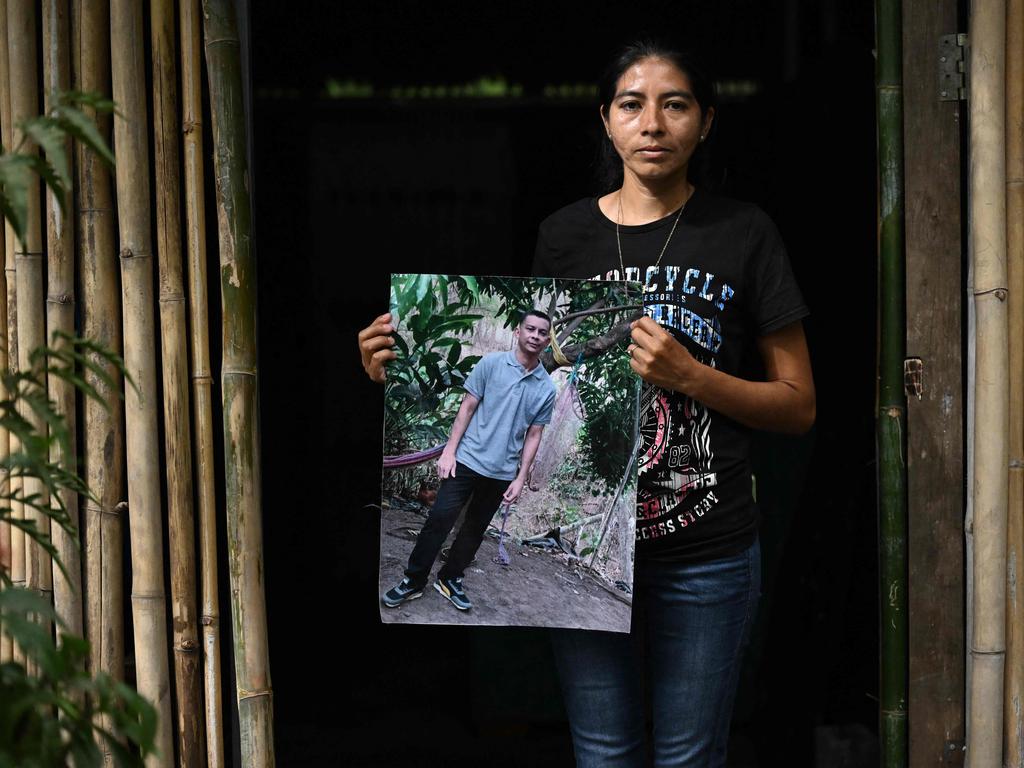
‘One lives in fear’
Maricela Mendez, 35, was sleeping when police burst into her home in a suburb of the capital in July 2022.
She was taken to prison and her children, 11 and seven, sent to stay with their grandmother.
Ms Mendez was accused of being a known local criminal, but insists she is innocent. “The police officer had a quota of five arrests,” she told AFP.
A month after she arrived at prison, Ms Mendez found out she was pregnant, and lived in fear of a miscarriage for all her five months of incarceration.
“We were punished, we were beaten, we were not given water [and made to sleep on the floor],” the beautician said of her experience in three different penitentiaries.
She gave birth two months after her release.
The bigger children are still traumatised, she said.
“When they see a patrol car they cry, they are afraid they will take me away again … one lives in fear,” she said of life in Mr Bukele’s El Salvador.
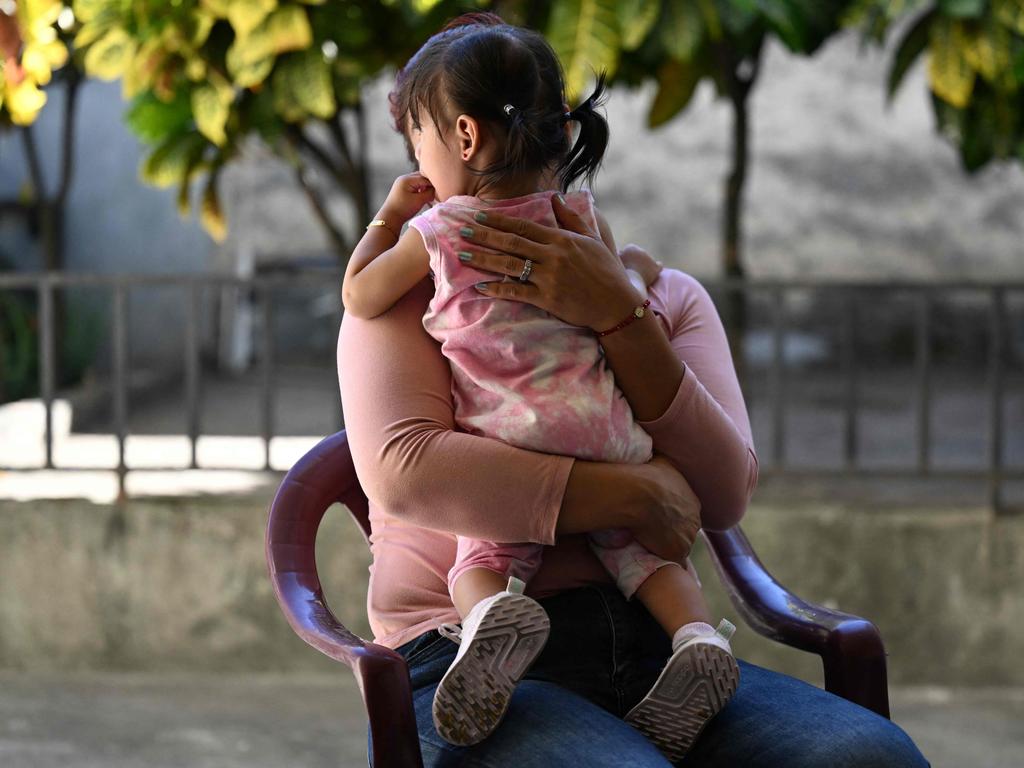
‘Good people are paying’
Josefina Bonilla takes care of two toddler grandchildren. Their mother, Ms Bonilla’s daughter Stefany Santos, 24, was arrested in June 2022.
“I have no news of her,” the 63-year-old told AFP tearfully, showing off a photo of her daughter at her home in Soyapango in the San Salvador department.
She suspects Ms Santos was falsely denounced by her in-laws, with whom relations are strained.
“She is innocent. People are taken away and not investigated,” said Ms Bonilla, who is unable to work for having to take care of the little ones, and gets by on handouts.
“My daughter is asthmatic and has psychological problems. I worry that she’s not getting her medicine,” added Ms Bonilla.
“Good people are paying for the sins of others,” she said in reference to the now-diminished gangs that had for so long imposed a reign of terror on the country.
“Mothers are without their children, and children without their parents.”
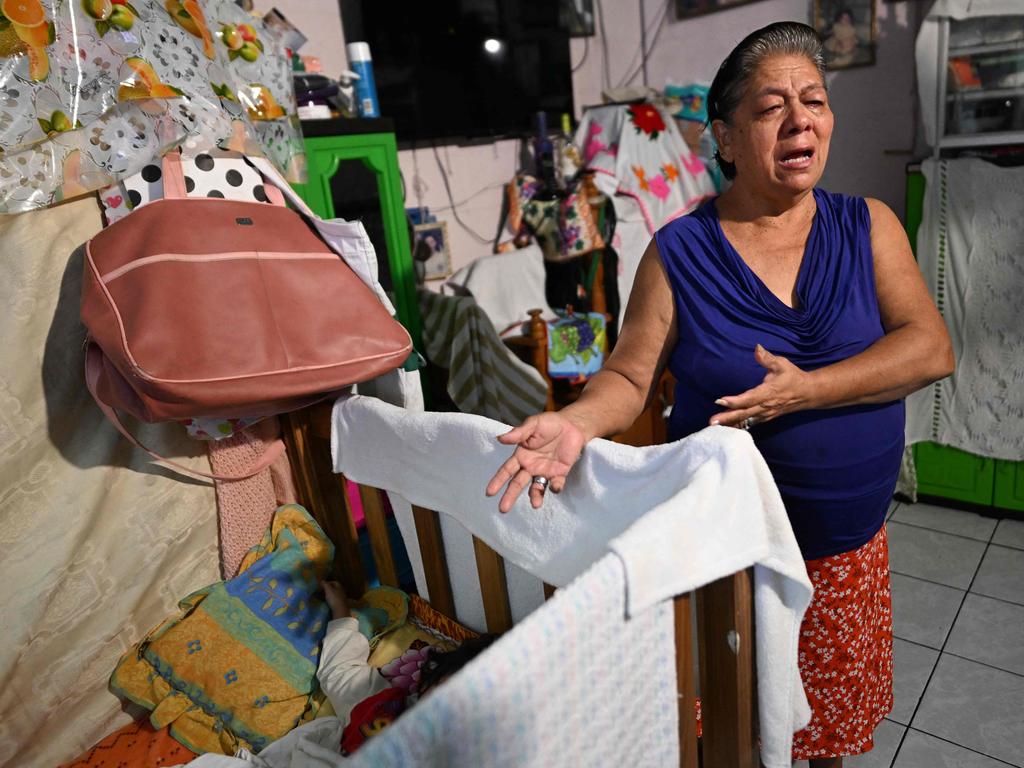
Robbed of a future
Irma Garcia, 42, told AFP she had not been able to speak to her son Isaias Galicia, who was arrested aged only 17 in June 2022 and charged with gang association.
“I haven’t seen him. I don’t know if he’s okay, if he’s alive,” she said, clutching a photo of her son at her home in the north of San Salvador.
“My son is not a gang member, he doesn’t have any tattoos, he didn’t hurt anyone,” insisted Ms Garcia, who works as a cleaner and has three other children aged 13 to 21.
After Isaias’s arrest, Ms Garcia said the family was cast out by their community, and forced to find a new home.
She said she brings food, water and clothing to the prison, but has no idea if her son receives any of it.
“I live in fear that they will inform me he was killed inside,” Ms Garcia told AFP, lamenting that innocent young people are collateral damage for the gang clampdown, necessary as it is.
“They have taken away their dreams, their future.”





